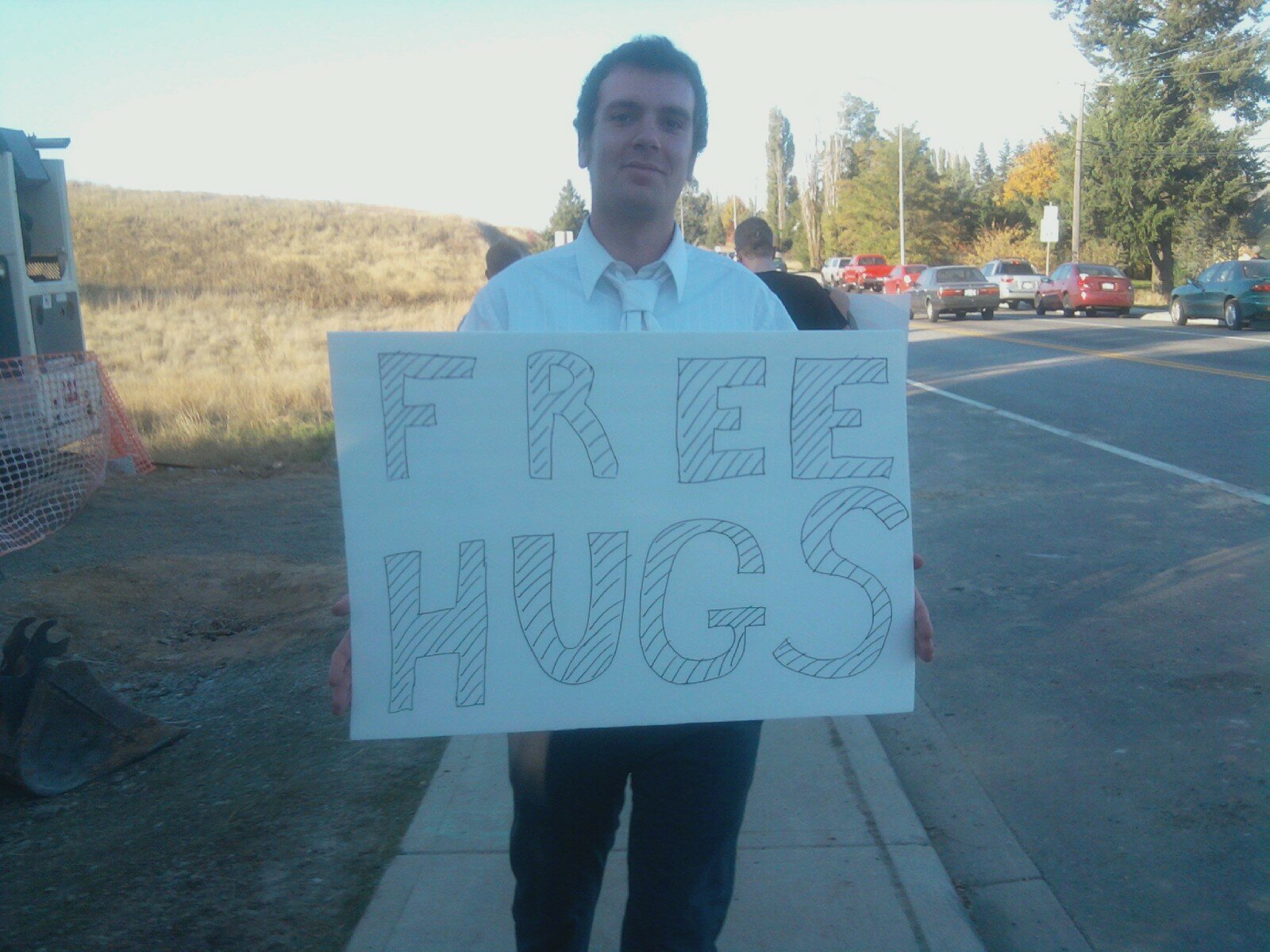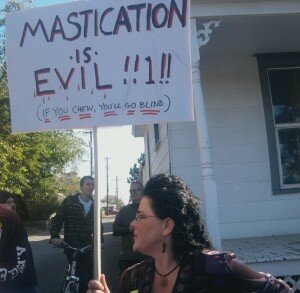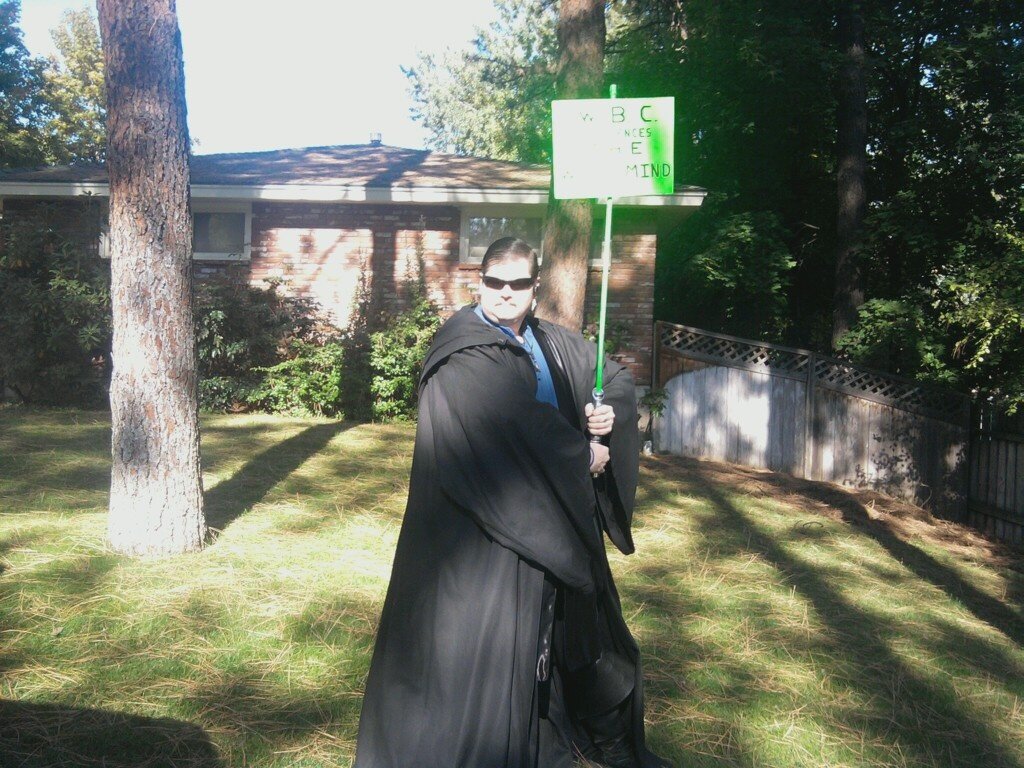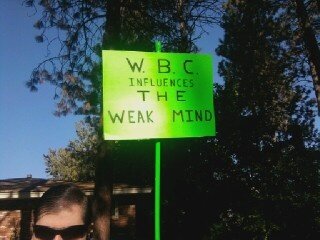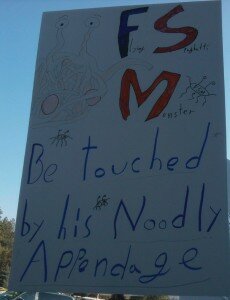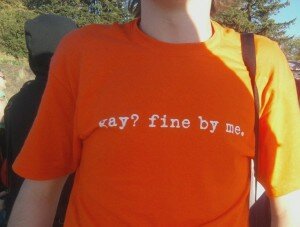In a world where sexual topics are frequently shunned in most formal contexts, where walking into certain buildings requires us to attempt to leave our vaginae and penises behind, it is not surprising that conflicts will exist between sex industry workers and the rest of the working world. Sadly, a crossing over of the sex industry into other elements of American culture can have tragic results and adding to those matters the tendency for humans to be self-righteous and self-serving (not that all do this, but many do) and one sex worker coming out to the rest of the world can result in the biggest social explosion he or she will ever see.
That’s what happened to Lisa D. Chávez. Her story is actually pretty complex. The major players in the events that transpired each have their own agendas and have to deal with their own set of battles due to what happened with Chávez. I don’t want to assume that any single person is an evil individual, in this matter. Instead, I think there are some serious flaws in people’s thinking that builds upon this issue and creates a complete social mess that can ruin lives.
Does that sound overly dramatic? Well, it isn’t. People in the sex industry are constantly fighting against some extreme social stigmas that can affect the kind of future we might have. This isn’t because people in the sex industry have automatically done something wrong, instead, it is because society often assumes people in the sex industry are bad people, with questionable moral values and lacking skills. Furthermore, people often want to avoid being associated with those in the sex industry because they don’t want to deal with others questioning their judgment.
The Chávez case includes more problems than that, though, so I’m going to sift through the information that I have and see what we find. My first impression of this issue started here, when ScienceGoddess sent me the link. From there, I read the article David Kroll linked to, here. A quick Google search generates links that all lead back to the article in the Chronicle, but additional google-fu did get me to the site Chávez worked for*.
According to the Chronicle, Ms. Chávez took the phone sex job as a natural response to being stuck in a sucky economic situation. This isn’t an uncommon motivation for entering the sex industry, which has a high turnover rate because it seems like an easy way to make fast cash and, as our society becomes more sexually progressive, it seems like a more acceptable thing to do. That is, unless you’ve got some significant social standing, like being a professor. This kind of job, though, isn’t easy and people frequently leave the industry as fast as they entered, for a variety of reasons.
The self-described, pro-sex feminist, Ms. Chávez had heard about being a phone sex dominatrix through her students, she discussed the empowerment that such a job can give an individual and how this job could give the students good life experiences and improve their writing. I can tell you, based on my experience and the experiences that my peers have shared with me, those things are very true. Sex work can be very empowering and can give a person experiences in life that they can’t find anywhere else. The catch is, you still have to deal with the rest of society.
Back in 2008, it really bothered me how others reacted to the sex industry and how the people I knew within the industry didn’t really reflect the image that society seemed to create of them. As a result, I conducted a series of very informal interviews, asking my peers questions about how they saw themselves and about how they thought others saw them. One of the most disturbing things I noticed was that my peers seemed to indicate that the worst part of their job was not the work itself or how their clients treated them. Instead, it was how the people outside the industry treated them. There was a running theme that seemed to indicate that the thing that made working in the sex industry the hardest were the social rules that told each worker that they were bad for what they did; it was the people who discriminated against the sex workers who made life for the sex worker suck. The job was often power; general society were robbers of it. Sadly, it didn’t take much time for the empowered Chávez to experience this and part of the reason was due to a few mistakes she made.**
Chávex’ story, if her side is really what happened, doesn’t really show malicious intent. The errors that Chávez made appear to be that she might have influenced a student’s choices and she had her picture taken with another.
When I first started stripping, the experience was absolutely amazing. One of my friends was also a stripper and one night, we were sharing our experiences and talked about how our job made us feel. In that conversation, she said to me something like, “you know, when I see a girl in a sucky job, like bagging groceries, and I think about how pretty she is and how nice, I often wonder why it is that if I were to tell her she should try my job out, it feels like I’m selling crack. If I had any other job, though, it would be like I was handing her a life-saving tether.” My friend was right. My friend was right. Our jobs are looked at so negatively by society, telling a person that they should apply at McDonald’s ranks higher than telling them that they should be a stripper, even if the latter was more likely to meet all of her needs. There’s no way to know how the conversation played out when Chávez talked about the sex industry or her job with students, but even if we did know how the conversation went, the odds are high that her peers would have been just as critical. One of her students could have been starving and Chávez was likely to face criticism when her opinion on phone sex influenced a choice. In fact, the story of the student Chávez posed with, Liz Derrington, had a sad story of her own to tell, having gone through a divorce and apparently landing a job at the same place Chávez worked on her own, but people didn’t look at the events that transpired as someone trying to claw their way out of a pot of boiling water. The other student mentioned was also not seen with a very objective light on her story. Even the Chronicle hints at a concern that Chávez indirectly influenced her decision, but it ignores that this person is an adult that made her decision on her own and Chávez didn’t force the girl into it. Instead, they saw it as Chávez potentially abusing her position and harming the learning environment.
Pictures are the inarticulate mouthpiece of the sex industry. people say that a picture is worth a thousand words, but if that is true, pictures can be horribly deceptive bastards. People give pictures far more credit than they’ve ever deserved. I don’t want to say that pictures are horrible and all wrong, but pictures tell a very limited story which usually lacks context. So it was that when Chávez posed for a picture with her student, the picture spoke for them, but it didn’t really say much at all and, to some people, it said the wrong thing, entirely.
Chávez and Derrington were at work, at a job unrelated to Chávez’ position as a professor and Derrington’s role as a student when suggestive pictures of them were taken for the people they were working for. In other words, they were doing a different job. Yet, these pictures were a major player in Chávez’ becoming a target of her peers. The objection to Chávez’ alternate job could easily have cost her the position she had as a professor. Yet, most other alternate jobs that a professor might take wouldn’t have been a big deal, no matter if she was working alongside a student as an equal or not. So, is it an abuse of authority if Chávez poses next to a student, who happens to be a co-worker, in that context, for erotic purposes? Not anymore than if they worked alongside each other at a fast food joint because, in that context, Chávez wasn’t in an authoritative position over her student.
But that’s not all that fueled the controversy around Chávez. Chávez taught creative writing and her students complained to other professors about sexually charged conversations in class. This brings up some other interesting questions. When is it appropriate to talk about sexuality in a college classroom? If the person teaching Gender Studies classes can talk about porn, why can’t a Math teacher? It seems to me, the difference is in context. Is talking about sexuality relevant to the class or somehow important to the student’s experience in that class? If so, then discussion about sexuality should be open, honest and frank as long as nobody’s safety is compromised. Skill in writing is not an easy thing to gain. Unlike other subjects, where going from a problem to a solution is easy, where 2+2 will always equal 4 and knowing what the Fibonacci sequence is can unpack a number of useful applications for you, neatly, being successful at writing is complicated. Writing is barely formulaic and being able to write articulately about things requires knowledge and experiences to draw upon that aren’t mathematically constant. Furthermore, a good creative writer can write about all aspects of life. Sex, one of our most innate drives, is one of those aspects. So, does sex have a place in a class on creative writing? I am quite certain that it does, but society probably disagrees with me. I just don’t think they have a rational basis for their disagreement. So, for the students who complained about the sexually-charged conversations in Chávez’ class, unless they weren’t learning anything and/or someone was getting hurt, the problem in their class was with them.
The fact that people sought to harm Chávez by showing her pictures from her other job to her superiors is a horrible statement about the type of people they are. To me, it seems just as unethical as when people tried to get PZ Myers fired over unprovoked harm to a cracker. I know, having erotic pictures taken of you is not the same as violence to a cracker, but the similarity is in people being unable to keep in-work behavior separate from away-from-work behavior.
There is part of this controversy that is so sticky and confusing that I’m going to refrain from saying anything authoritative on it at all. In regards to a student, Carrie Cutler, there is a lot of he-said-she-said involved. There’s not really a way to gather information on what happened between them mostly because all that is related to them in this issue is from personal testimonies from people which appear to vary. It also seems as if there is some missing conflict that isn’t talked about, even in the article from the Chronicle. Basically, the conflict doesn’t make sense and appears to be something that should be disregarded when examining Chávez’ work as a telephone dominatrix. If either the student’s accusations that Chávez spoke inappropriately about her or Chávex’ claim that the Cutler was trying to harm her were true, those are matters that should be dealt with on their own. Chávez is responsible for her actions as a professor and students are also responsible for their own conduct. If the student and Chávez were moonlighting as waitresses, we wouldn’t consider drama carrying over from their waitress jobs to be questionable, just because it caused drama at the school. Instead, it would just be the conduct that took place at school, related only to the dramatic incident, that would be a concern for Chávez’ employers.
Yet another issue lurks in the murky water of this controversy, as well. When we look to an educator to help teach us a subject, we hold them to a kind of odd standard. Instead of measuring each professor based on what they can teach us, we set up other standards that go beyond that one thing. The classroom and general feel of a lesson is all the burden of a professor to carry. We call this, ‘the learning environment.’ Ms. Chávez was investigated for possibly creating a bad learning environment for her students. These accusations were not based on information gained from all of Chávez’s students. Instead, it was, again, the accounts of a few who may not have had all the information. Furthermore, this kind of investigation appears to make Chávez responsible for the educational environment when others could be influencing it. I’m glad that the investigation resulted in the conclusion that Chávez was not guilty of creating a hostile learning environment or of sexual harassment because it appears to be the case that it is the aversion that her peers had that was the driving force behind it, and not something Chávez did to actually harm someone. Chávez’ peers were then asked to reach some sort of peaceful settlement.
It didn’t help. The teachers are still objecting to Chávez staying with the school.
Enter another complicatedly tangled web: racism and sexism. Given the sparseness of evidence related to these issues, I’m only tossing them out there because they relate to the story. The hows and whys of their relevance have not been clearly revealed and so are not really worth commenting on other than to mention that they are there. Sadly, racism and sexism are a serious problem when it comes to issues related to the sex industry. That’s pretty much all I can say to shed light on that aspect of the story. Again, if these accusations are true, they should be treated as another matter, and not be used to influence decisions about Chávez’ work in the sex industry. For similar reasons, I have to skip over many of the accusations found in the Chronicle, such as faculty calling Chávez a prostitute. It is silly, but not uncommon for people to exaggerate the role an individual has in the sex industry. I get accused of being a prostitute, as well, and most of my work is done at home, while I’m completely alone (it is impossible to have sex with someone for money when there’s not a someone there with you). I think these accusations come from a desire for those objecting to the industry to demonize individuals as much as possible and it is a elementary school playground tactic. The biggest difference seems to be that, as adults, those involved in this scandal get to let their lawyers do the name-calling for them.
The saddest aspect of this whole debate seems to be that a whole department in a school has been affected by, not Chávez’ actions, alone, but by the reaction that her peers had to her work as a performer. Her work, which should not have mattered, has such a stigma attached to it that her peers were incapable of dealing with it as adults. Their tantrums over how they feel has created chaos that the rest of the school has to deal with. I’m not going to paint Chávez as a lone victim, but I really don’t think she’s as guilty of creating a poor learning environment for her students as her peers appear to have been.
David Kroll, from PLoS suggests that Chávez resign:
Not knowing anything more about the case than the article in The Chronicle, the simplest resolution would seem to be that the faculty member in question resign.
While I understand his reasoning, the student experience is a very important thing to consider, I don’t really think that is the right answer. If this issue really is being fueled by the offended peers of Chávez, then her career is lost due to their callous, bully hands. Her actions as a phone dominatrix were not harmful and were not an example of an abuse of power. Regardless of if they looked like coercion, they shouldn’t be treated as if they are because we know, based on the information given in the Chronicle, that they weren’t. Allowing her picture to be taken was a mistake by Chávez, but only because of how society reacts to these things, not because she actually was doing something wrong. Should she be forced to resign over the picture, then it is more of a testament to the power of bigotry against someone who worked in the sex industry than an actual, rational response to the situation.
As for the other accusations that exist in the comments and in the article, there’s no way for bystanders like myself and Kroll can’t really get enough information on them to take any objective stance, so we should really be responding to the whole thing with that in mind, and addressing only those issues which the Chronicle gives us sufficient evidence for.
*As a side note from someone who has been around in the industry for a while, the site Chávez worked for is an atypical contract arrangement. It doesn’t encourage the same safety standards that most other contracts do that allow people in the sex industry to keep their identities hidden. Further, in order to begin working for them, People Exchanging Power requires applicants to first pay for an information packet and then you can start working for them and, if you stick around for six weeks, you might get your money back. None of what is said to be in the information packet is something that couldn’t be put online someplace for performers. While it may not be the intention of PEP to do so, this stinks of a way to take advantage of people looking for this kind of work.
There is also a little deception in how they present your potential earnings on the site. While the website says that an individual makes $35-$50 per every hour of talk time, that doesn’t mean that you’ll be talking the whole time that you’re logged in to work for them. most companies have a range of per minute earning potential, but the catch is that you’re only going to make money when you’re talking and if there are large gaps of time between the calls you take, you are unlikely to make the kind of money they’re trying to imply.
**While I think my interviews with people are relevant and important to this article, I am aware that they cannot be considered something that was done with scientific rigor. While I do my best to preserve the scientific process as I go about my study of sex and the sex industry, I am only one person and my peers are not even close to including the diversity I would encounter were I ever able to have the exciting opportunity of doing a cross-sectional study.
![]()



